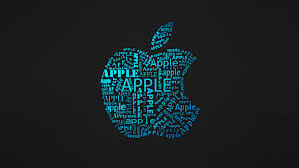
Protests in China have drawn international attention as the most serious challenge to President Xi Jinping's premiership and a significant blow to the Chinese Communist Party's (CCP) long-standing authority.
However, their spread within China was hampered in part by a key change in Apple's AirDrop feature, which was released just weeks before the unrest.
AirDrop, which allows users to share content between Apple devices, has become an important tool in recent years in protestors' efforts to avoid authoritarian censorship regimes.
This is due to the fact that it relies on wireless connections between phones rather than internet connectivity, putting it outside the purview of internet content moderators. It uses Bluetooth to connect two devices to form a peer-to-peer Wi-Fi network.
During Hong Kong's pro-democracy protests in 2019, demonstrators used AirDrop's open network to share messages and protest literature with passers-by and visitors from mainland China.
AirDrop was reportedly used to disseminate messages based on banners produced by a Beijing demonstrator known as "Bridge man" in mid-October.
It was, however, limited earlier this month, when a Nov. 9 update to Apple's global operating system, iOS 16.1.1, included an additional AirDrop feature that was only available on iPhones sold in mainland China.
According to the update, iPhones can now set their AirDrop to receive messages from "everyone" for 10 minutes before turning off. Other options include "contacts only" file sharing and "receiving off."
There were no comments from Apple on the issue. According to the company's online statement, the software update includes "bug fixes and security updates and is recommended for all users."
According to Quartz, the change was first noticed by Chinese readers of fan site 9to5Mac and does not currently apply to iPhone users in other countries.
According to Bloomberg, Apple intends to roll out the update globally next year.
The timing of the release is significant, as it comes just a month after Xi broke precedent and secured his third term as China's leader.
The move was met with rare public dissent, a precursor to larger protests last weekend.
Nonetheless, while the unrest has been widely reported in the international press, coverage in China has been limited, and some have speculated that it may lead to a harsher crackdown on dissent by authorities.
“It raises the pressure on Xi Jinping, and I think likely puts him towards a more authoritarian approach to governance in China,” TS Lombard’s Chief China Economist Rory Green said.
Meanwhile, Apple has a history of adapting its products and services to meet China's stringent regulations. Last year, the company barred Chinese users from using a new feature designed to give users more privacy while browsing the web. Meanwhile, Apple removed several virtual private network (VPN) services from the Chinese version of its App Store in 2017.
According to Canalys data, China accounts for a growing portion of Apple's consumer market, with iPhones accounting for 16% of total smartphone shipments in China last quarter, up from 11% a year ago.
(Source:www.cnbc.com)
However, their spread within China was hampered in part by a key change in Apple's AirDrop feature, which was released just weeks before the unrest.
AirDrop, which allows users to share content between Apple devices, has become an important tool in recent years in protestors' efforts to avoid authoritarian censorship regimes.
This is due to the fact that it relies on wireless connections between phones rather than internet connectivity, putting it outside the purview of internet content moderators. It uses Bluetooth to connect two devices to form a peer-to-peer Wi-Fi network.
During Hong Kong's pro-democracy protests in 2019, demonstrators used AirDrop's open network to share messages and protest literature with passers-by and visitors from mainland China.
AirDrop was reportedly used to disseminate messages based on banners produced by a Beijing demonstrator known as "Bridge man" in mid-October.
It was, however, limited earlier this month, when a Nov. 9 update to Apple's global operating system, iOS 16.1.1, included an additional AirDrop feature that was only available on iPhones sold in mainland China.
According to the update, iPhones can now set their AirDrop to receive messages from "everyone" for 10 minutes before turning off. Other options include "contacts only" file sharing and "receiving off."
There were no comments from Apple on the issue. According to the company's online statement, the software update includes "bug fixes and security updates and is recommended for all users."
According to Quartz, the change was first noticed by Chinese readers of fan site 9to5Mac and does not currently apply to iPhone users in other countries.
According to Bloomberg, Apple intends to roll out the update globally next year.
The timing of the release is significant, as it comes just a month after Xi broke precedent and secured his third term as China's leader.
The move was met with rare public dissent, a precursor to larger protests last weekend.
Nonetheless, while the unrest has been widely reported in the international press, coverage in China has been limited, and some have speculated that it may lead to a harsher crackdown on dissent by authorities.
“It raises the pressure on Xi Jinping, and I think likely puts him towards a more authoritarian approach to governance in China,” TS Lombard’s Chief China Economist Rory Green said.
Meanwhile, Apple has a history of adapting its products and services to meet China's stringent regulations. Last year, the company barred Chinese users from using a new feature designed to give users more privacy while browsing the web. Meanwhile, Apple removed several virtual private network (VPN) services from the Chinese version of its App Store in 2017.
According to Canalys data, China accounts for a growing portion of Apple's consumer market, with iPhones accounting for 16% of total smartphone shipments in China last quarter, up from 11% a year ago.
(Source:www.cnbc.com)














